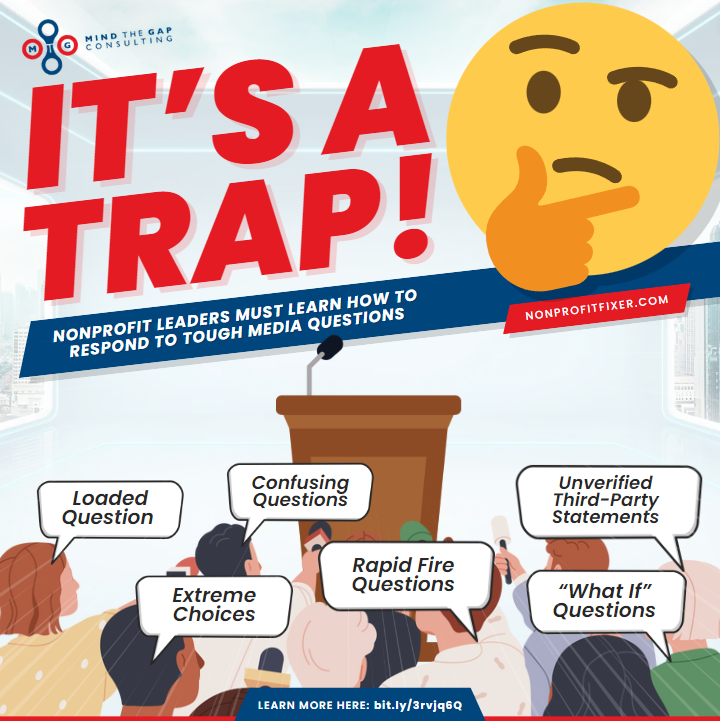It's a Trap: Handling Tough Media Questions
All people could benefit from media training, but nonprofit leaders should make it a priority because getting covered accurately in the media is essential to growing your organization. Two essential things I learned early on have stuck with me. First, even though a reporter may be interviewing you, you are not talking to them. You are talking to their readers, viewers or listeners. When you know this, you will be far more effective at getting results. Second, don't answer the question asked of you. Respond with what you want to say.
But there are also traps. Below are some tricky media situations and how to handle them.
Loaded Question
A loaded question is confusing or convoluted. It may contain false or confusing context. Restate, and then answer the question, correcting misinformation and framing it in your favor.
Extreme Choices
This question tries to box you into only a few answers. “Well, what is it Becky? Is the Senator a traitor or a hero?” Resist the temptation to fall into this trap. Restate the question and respond with what you want to say.
“What If” Questions
Hypothetical questions are a trap. They rarely serve you well. The reporter may be looking for predictions or even drama. Only respond to real situations. Say this, “Regardless of how the election goes, we are fighting for families and our time is coming.” “I am not in the business of predictions, but I can say…”
Unverified Third-Party Statements
Do not respond to hearsay, quotes you haven’t verified, or documents you haven’t seen. Ask to see the quote, hopefully from some news outlet. If the reporter says, “The Pope today said XYZ about immigrants. What will that mean for your organization?” If you haven’t verified the quote, say “If that is true, we stand in agreement that…” Or even better, “We are always happy to get religious support for our cause. This means we…”
Rapid Fire Questions
This is when a reporter is aggressive or trying to get through a lot of questions quickly. These can happen because of deadlines, intense scrutiny or just plain rudeness. It is hard to respond to these questions so don’t feel like you need to match their energy. Relax and refocus Those are all great questions, Steve, but it all comes down to our mission…”
Confusing Questions
Sometimes the reporter isn’t even clear or well-read on the topic they are covering, so they may as uninformed questions. Reframe the question and then address it.


